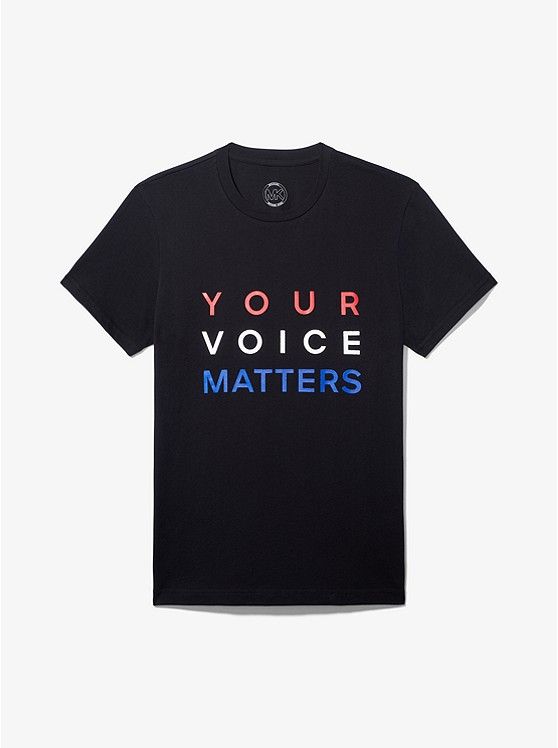What's at Stake for Healthcare in the 2020 Election?
A lot hangs in the balance.
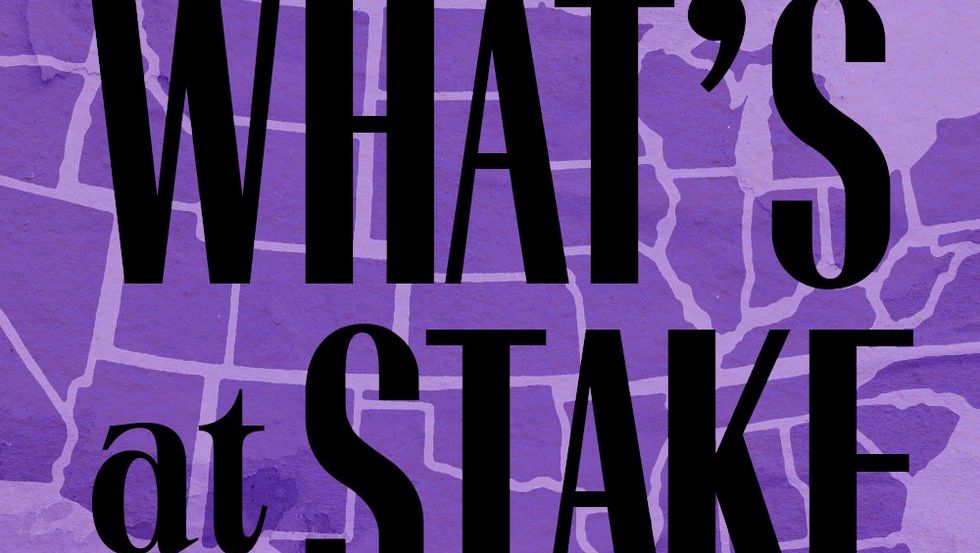

Healthcare is one of the most complex topics in American politics, especially in the midst of a pandemic. It's a dense subject, but its implications can be severe: under the umbrella of healthcare, women's rights can be put at risk, endemic racism and sexism can be amplified, and regular Americans can be forced into hundreds of thousands' worth of dollars worth of debt.
An over-simplification of how politics and healthcare intersect would say that the Democratic party tends to favor more healthcare coverage rather than less, and more government action to control costs and establish market equity; the Republican party, meanwhile, tends to favor privatized healthcare and less governmental oversight as a rule. Yet in the current landscape, which is politically divisive than ever in addition to enduring a pandemic, party lines are less clear.
Many Democrats argue that the issues on the table in 2020 are a matter of human rights, not of deductibles and copays. The Trump administration has issued healthcare-related policies and orders that have marginalized groups including women, LGBTQ+ individuals, and people and communities of color. Here's what's at stake for some of the most pressing healthcare topics today, and where both presidential tickets stand on them.
COVID-19
Trump and Pence: The current administration, which has overseen handling of the current pandemic, has leaned towards ignoring scientific sources and advice and existing pandemic infrastructure. It has offered contradictory views on wearing masks and touted unproven, potentially deadly remedies; Trump has also threatened to leave the World Health Organization.
Harris and Biden: Harris and Biden have a section of their website devoted to their coronavirus plan, which involves increased reliable testing and personal protective equipment (PPE) and re-setting up safeguards to mitigate COVID-19 impacts. Harris had proposed the COVID-19 Racial and Ethnic Disparities Task Force Act, which is designed to ensure that solutions are equitable for populations that see higher healthcare disparities and mortalities.
Healthcare Accessibility
Trump and Pence: The current administration repealed the individual mandate requiring people to have health insurance, and has fought the Affordable Care Act, which was enacted under the Obama and Biden administration. They have proposed re-allowing insurance companies the ability to discriminate based on medical history.
Harris and Pence: Biden was, of course, a part of establishing the ACA during the Obama administration, and supports its enhancement as well as improving the efficacy of Medicare. His plan may still leave gaps in coverage, and Harris and Biden initially clashed on this. Now that they're running mates, their newly released healthcare plan is a sort of hybrid, with a “Medicare-like” public option for consumers and an option for more affordable private insurance too.
Get exclusive access to fashion and beauty trends, hot-off-the-press celebrity news, and more.
Healthcare Equity
Trump and Pence: Progress has stalled on improving racial disparities in healthcare since the current administration took office. The President's claims of delivering results to reduce inequality for Black Americans have been debunked or unveiled as overblown.
Biden and Harris: Harris and Biden address healthcare for communities of color on their website. They say that their plan includes healthcare tax credits for impoverished people and expanding coverage to low-income Americans in particular. They also want to increase support for community health centers, particularly for underserved populations.
Women's Rights
Trump and Pence: In their American Health Care Act of 2017, Trump's administration attempted to repeal the ACA and remove basic care provisions for women (it didn't pass the Senate). The administration also threatened to repeal Roe vs. Wade, forced Planned Parenthood out of Title X funding, and was recently given the go-ahead by the Supreme Court to push forward with allowing employers to deny employees birth control coverage for religious or moral objections.
Biden and Harris: Biden has an Agenda for Women that, among other things, says it plans to "further women’s economic and physical security and ensure that women can fully exercise their civil rights." His views about women's rights have changed; although Harris challenged him on his perspective in the debates, both believe in repealing the Hyde Act, which blocks Medicaid from providing abortion services and disproportionately impacts people in lower income brackets and women of color.
Medical, Especially Pharmaceutical, Costs
Trump and Pence: The U.S. is one of the few developed nations without a "publicly accountable process" for pharmaceutical prices. Costs have risen as technology has improved, but there's no system to determine cost relative to value. The current administration has flip-flopped on the subject. A House "Pelosi Bill" has tried to tackle drug costs widely; it passed the House, but the Senate doesn't support it. A Senate Finance Committee Bill, which does less in terms of comprehensive change, was reintroduced in July.
Harris and Biden: Biden initially favored basing U.S. drug prices on costs in other nations that have limits on costs. On the Biden-Harris website, importing pharmaceuticals is listed as a part of their healthcare plan, as well as limiting price increases, forcing drug companies to negotiate with Medicare and limiting their tax breaks, and improving the supply of generic prescription drugs.
Other Healthcare Issues
In addition to these topics, other subjects will remain important for the election and beyond, including: mental health treatment, access to telehealth, addiction treatment, transgender rights, and long-term care as the U.S. sees a rise in aging baby boomers.
Voter Merch to Help You Spread the Word This November
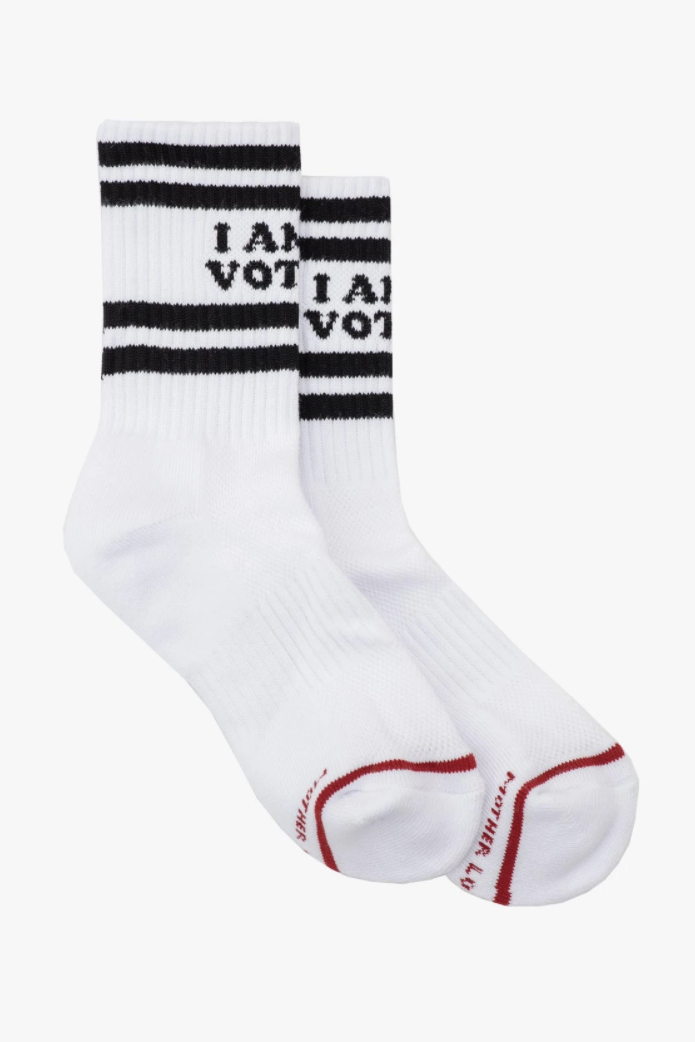
Mother x I Am a Voter Socks
Thanks to MOTHER, your sock game has never been stronger. Through December 31, 2020, MOTHER will donate $5 of the purchase price from each pair of socks sold to I am a voter.

La Ligne NYC x Cleo Wade F*cking Vote Tee
La Ligne partnered with poet, author, and activist Cleo Wade to create this super cute "F*cking Vote" tee. One hundred percent of the proceeds will go towards Stacey Abrams' Fair Fight to help fight voter suppression.

Vote Necklace
Everyone was obsessed with Michelle Obama's "Vote" necklace, displayed here, that she wore during her speech at the Democratic National Convention (DNC).
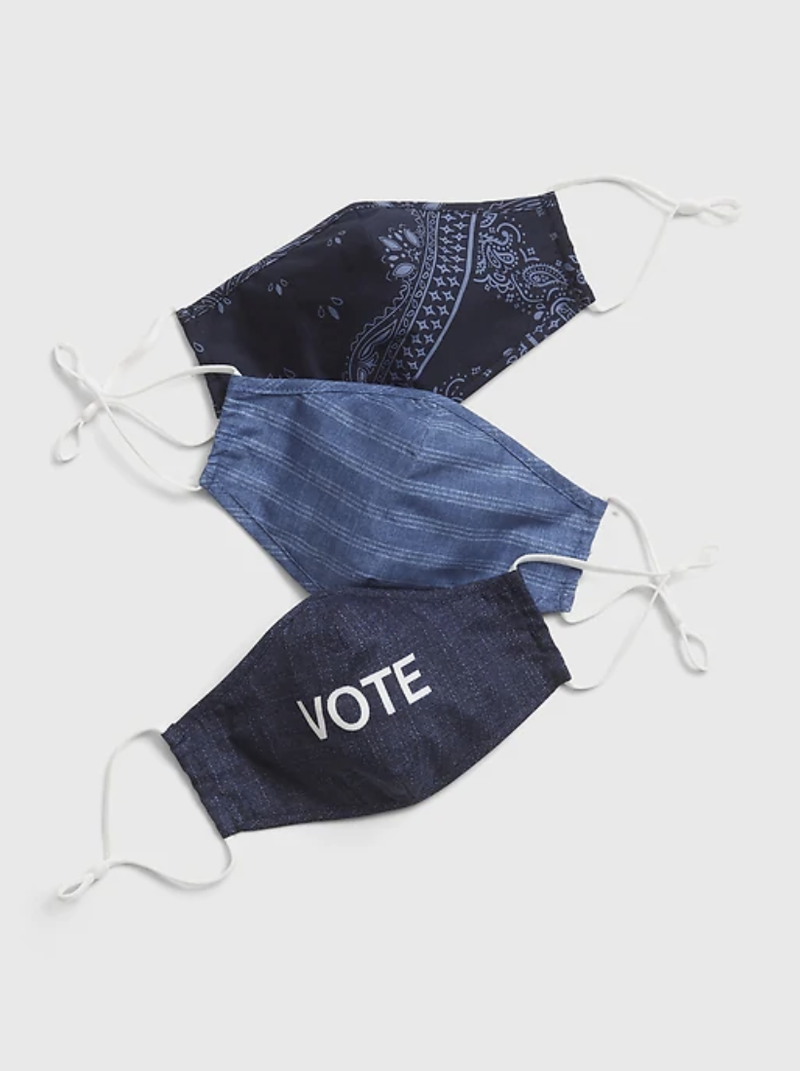
Adult Statement Face Mask (3-Pack)
A denim "Vote" mask? Say less. Gap is donating up to $25,000 each to When We All Vote and Rock the Vote.

Vote Necklace
This chic "Vote" necklace comes in two styles—one (spaced) retails for $360 and the other (script nameplate) retails for $480. One hundred percent of the proceeds will support the Black Voters Matter Fund dedicated to expanding Black voter engagement by increasing power in marginalized and predominantly Black communities.
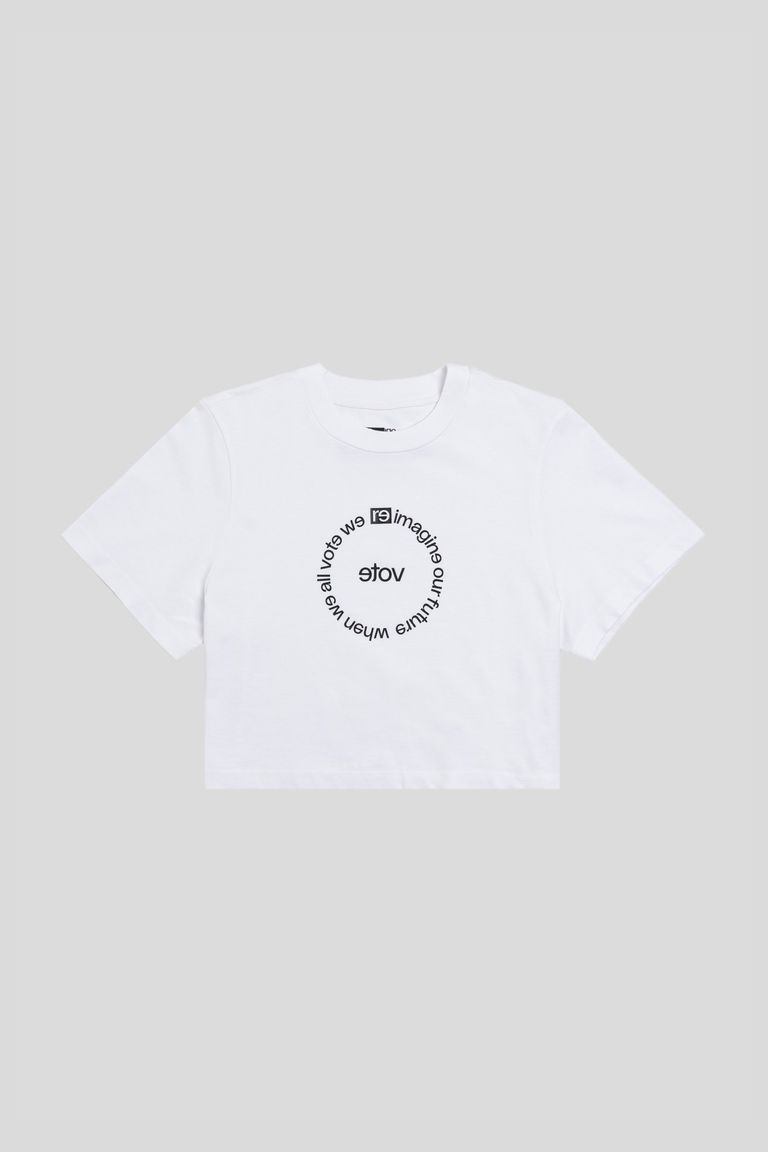
Reimagine Your Vote Crop Top
Re—inc's "Reimagine Your Vote" crop top is part of Michelle Obama's Vote 4EVER Merch drop featuring products from Black- and women-owned businesses in support of her nonpartisan organization, When We All Vote. While most of the merch is already sold out, you can take a look at what's still available here.

Vote Hat
Speaking of what's still available, that includes this "Vote" hat. Twenty percent of the net sales will be donated to When We All Vote.
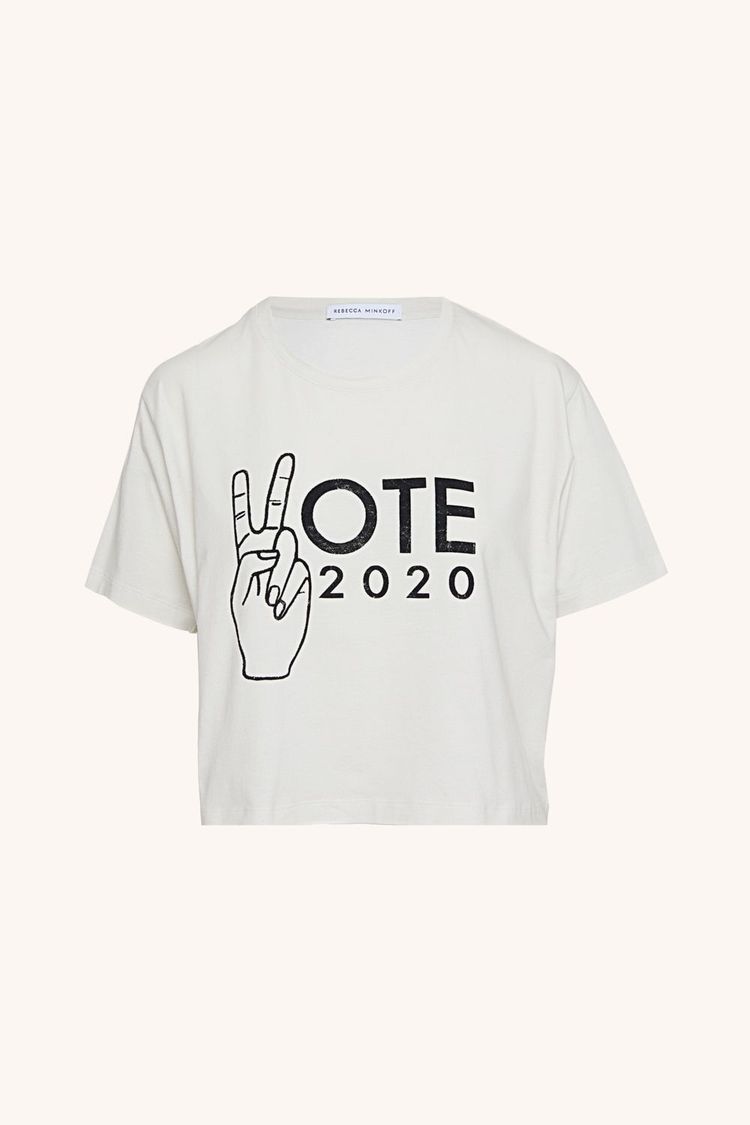
Vote Tee
For every "Vote 2020" tee sold, Rebecca Minkoff will make a donation to Vote Run Lead, a non-profit organization that empowers and trains women to run for office. (FYI the shirt runs small, so order a size up!)

Vote Mask
For every "Vote" mask purchased through November 3, 2020, Banana Republic will donate $5 to Rock the Vote.

Chambray Vote Embroidered Unisex Face Mask
Twenty-five percent of the proceeds from each Fossil embroidered mask purchase will be donated to Team Rubicon—a non-profit that provides relief to those affected by natural disasters and humanitarian crises.
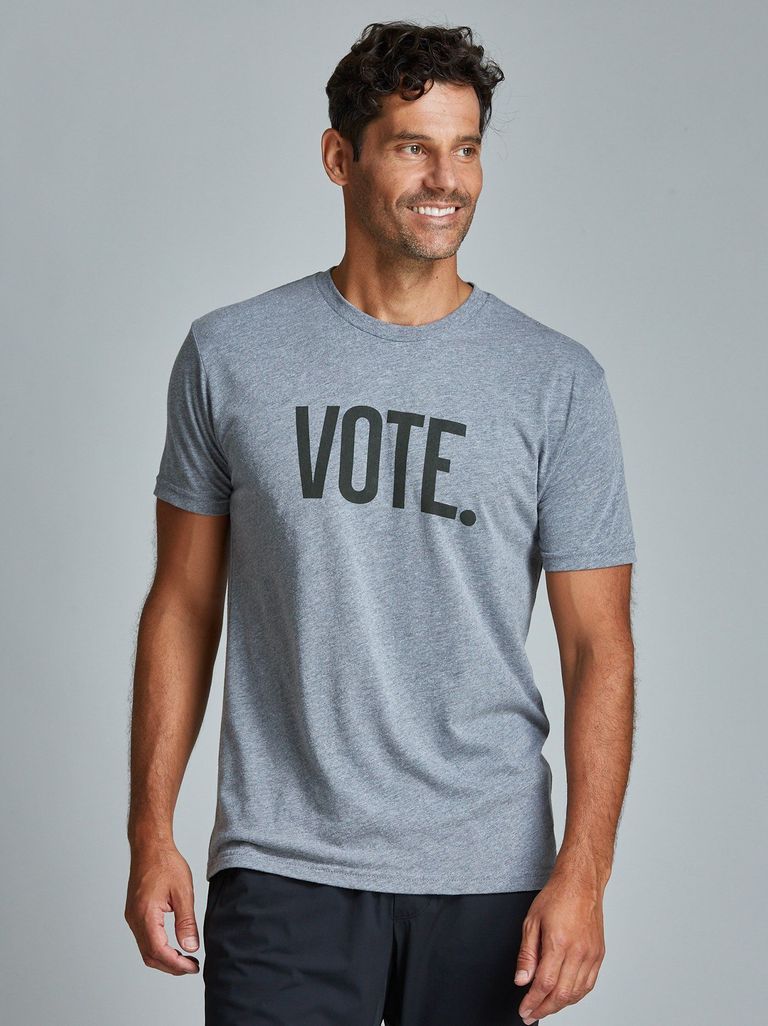
Vote Signature Tee
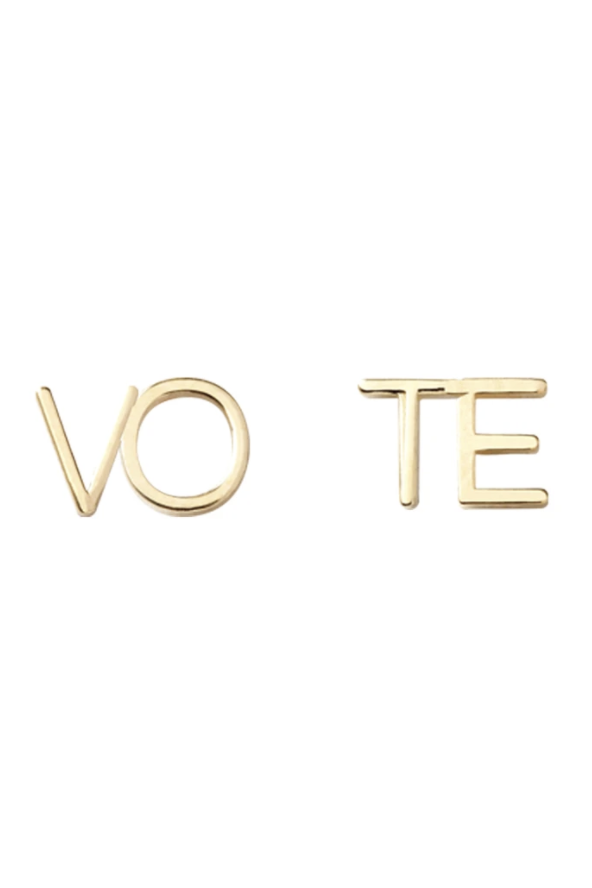
Vote Earrings
Fifty percent of the proceeds from these cute 14k gold "Vote" earrings will go to organizations that "amplify, celebrate and support Black voices," according to the brand's website.
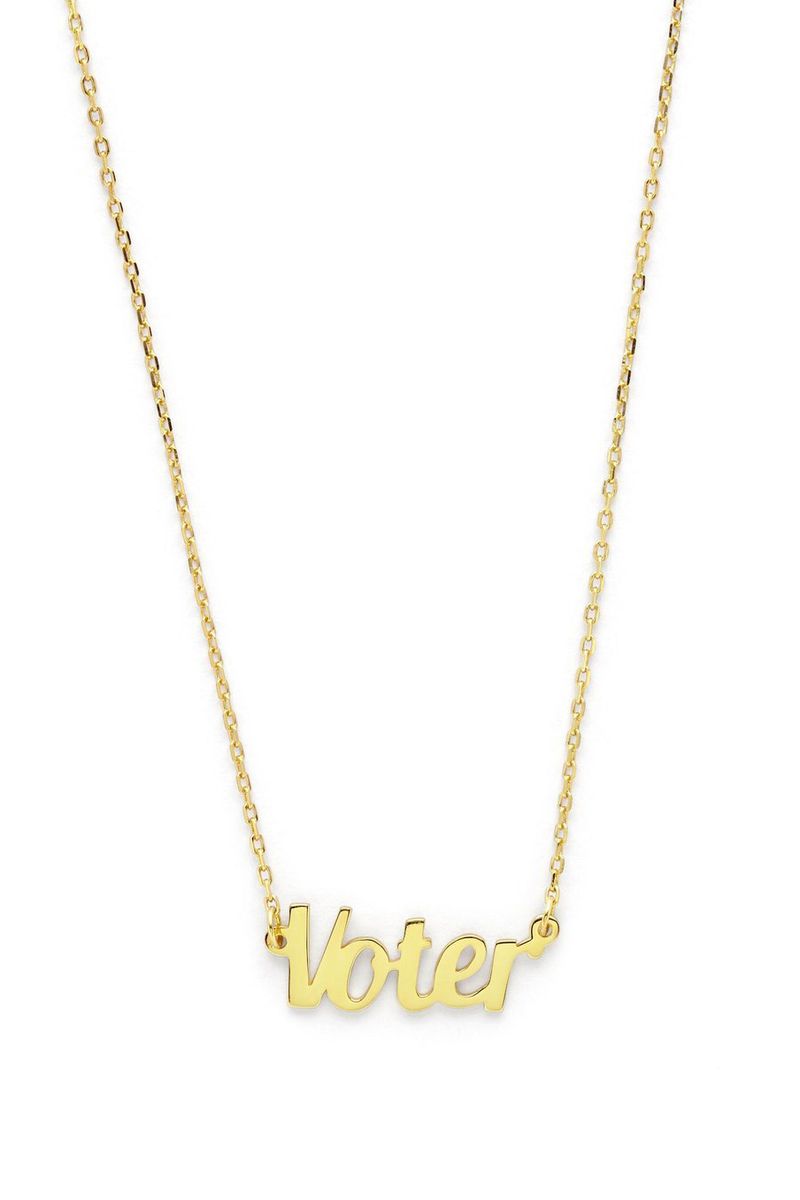
I am a voter. x Stella and Bow Necklace
From the same brand that brought you the popular "nasty" bracelet in 2016, Stella and Bow will donate $30 from each "Voter" necklace sold to I am a voter.
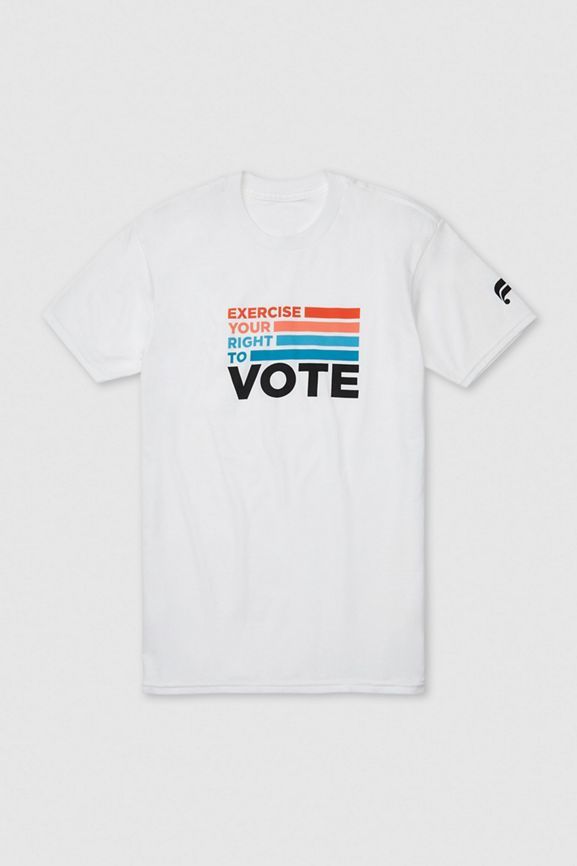
Vote Tee
This Fabletics tee says it best: Exercise! Your! Right! To! Vote! Then tell everybody you know to do the same.

I Vote Necklace
Ten percent of all proceeds from this fun "Watch Out I Vote" necklace will be donated to I am a voter.

Vote Face Masks, Set of 2
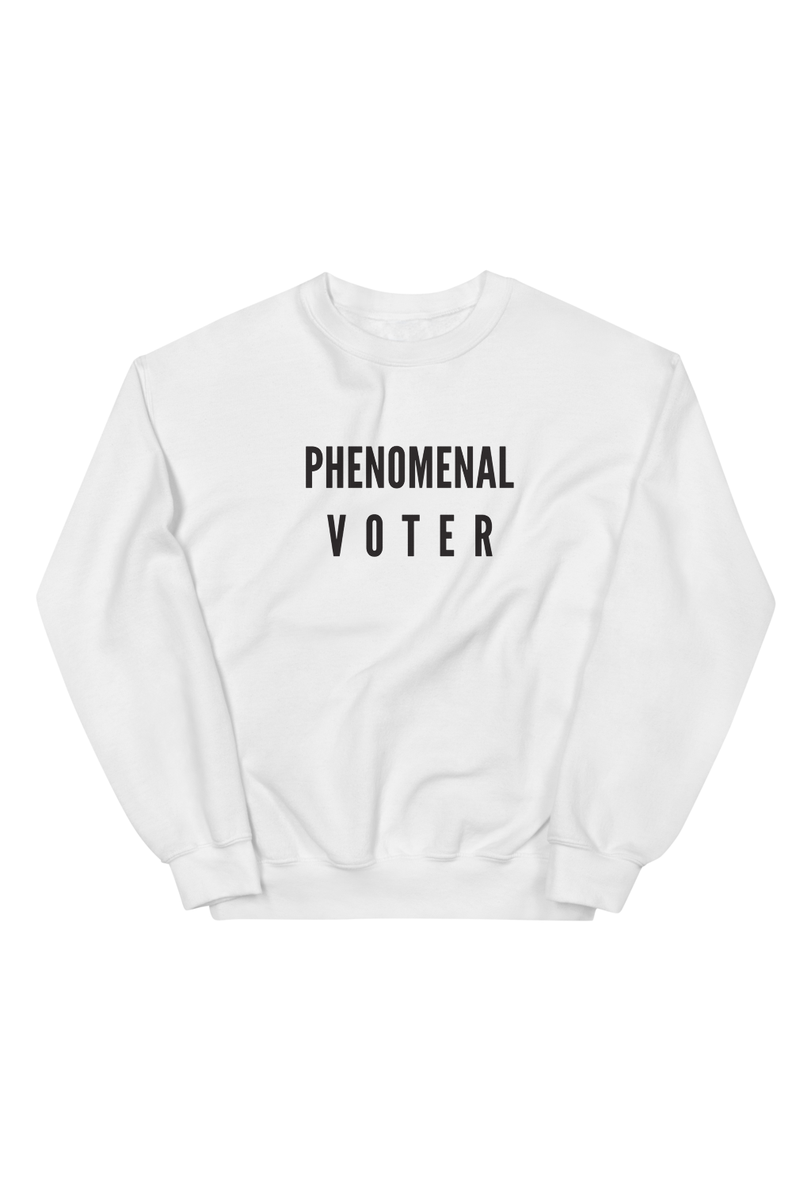
Phenomenal Voter Sweatshirt
Meena Harris, niece of Democratic VP nominee Kamala Harris, is the CEO & founder of the Phenomenal brand that supports a range of non-profits, including the Black Futures Lab, Justice for Migrant Women, and The Council on American-Islamic Relations. Purchasing this "Phenomenal Voter" sweatshirt is the perfect way to contribute to Harris' brand, as well as these other organizations.
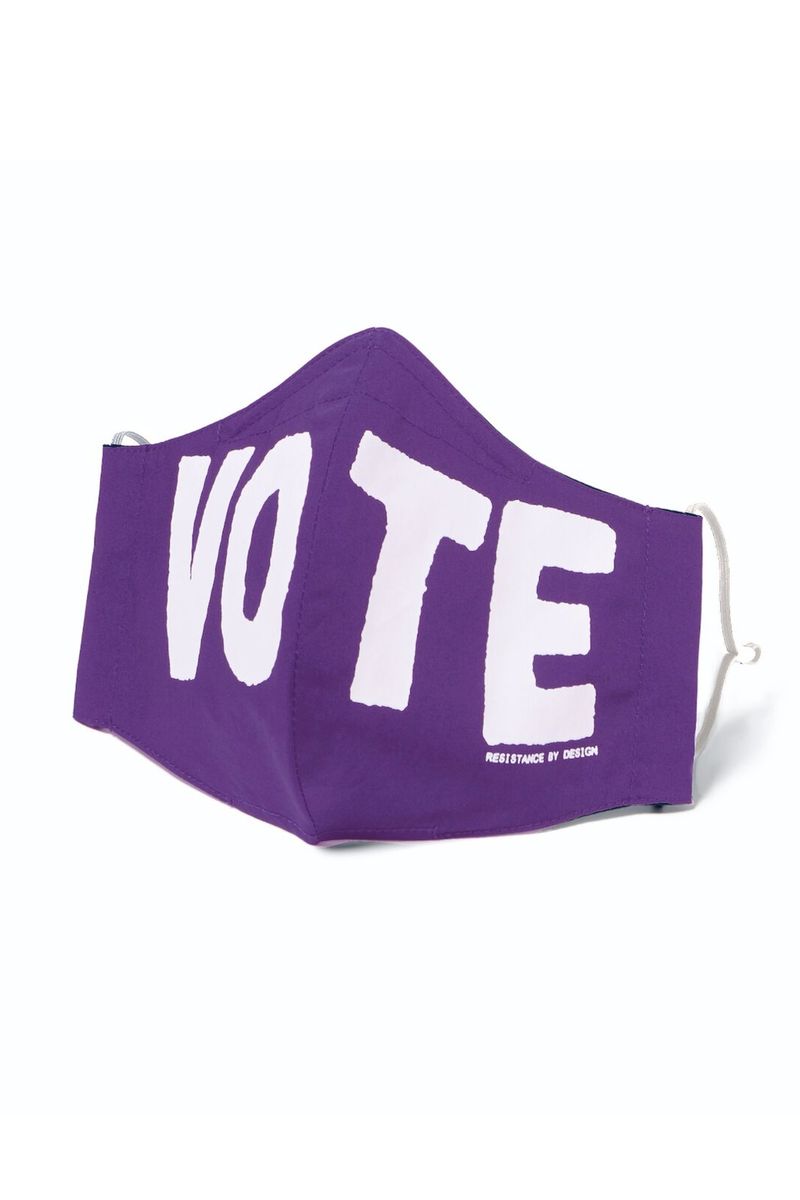
Vote Mask
Resistance by Design partnered with Fair Fight Founder Stacey Abrams to create this purple "Vote" mask, seen on everyone from Rep. Ayanna Pressley to Megan Rapinoe. Fair Fight will be donating a portion of the proceeds to the Southern Center for Human Rights.

CV x When We All Vote Canvas Tote
Clare V. partnered with When We All Vote to create this chic canvas tote. Ten percent of the purchase price will be donated to the nonpartisan non-profit, which is co-chaired by former first lady Michelle Obama, Lin-Manuel Miranda, Janelle Monáe, and more incredible people.
When We All Vote's mission is to "increase participation in every election and close the race and age voting gap by changing the culture around voting, harnessing grassroots energy, and through strategic partnerships to reach every American."

Voting Stars Flats
Birdies launched its limited-edition collection of hand-painted leather flats, available in five different styles, in collaboration with creative studio Leftys Right Mind to encourage people to register to vote.
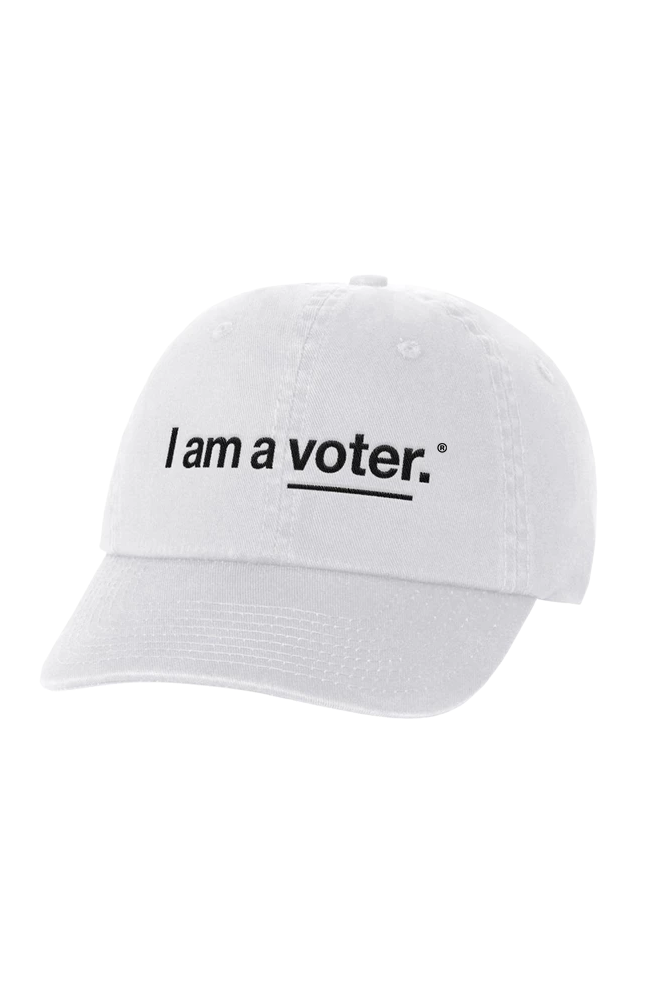
I Am a Voter Hat
I am a voter is a non-profit organization working to inspire people to vote and participate in democracy. The org's "I am a voter" hat will help remind people that they, too, can be a voter. After all, a true democracy only exists when we all vote.
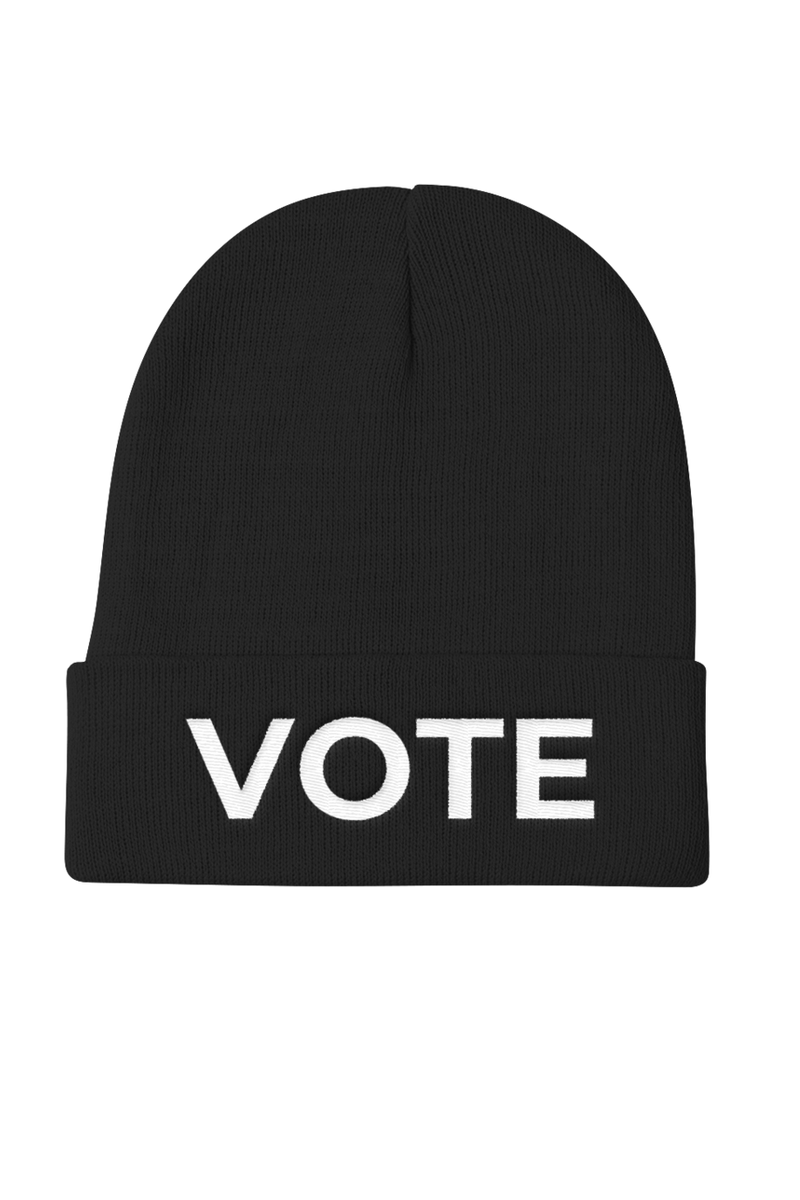
Vote Beanie
November is coming, which means you'll probably get a lot of use out of this beanie once October arrives.

#TheTeeInVote Long Sleeve
Find a chicer crew neck than this Michael Stars long sleeve with an illustration of writer, activist, and feminist organizer Gloria Steinem's face in the corner. According to the brand, $50,000 of sales will benefit grassroots organizations led by women of color, including Black Voters Matter, Voto Latino, and March On.

When We All Vote x Brother Vellies Canvassing Sneakers
Brother Vellies teamed up with Keds to create cute sneakers that say "when we all vote" on the side. Brother Vellies will donate 100 percent of the proceeds to When We All Vote.

This Is Our Time Customizable T-Shirt
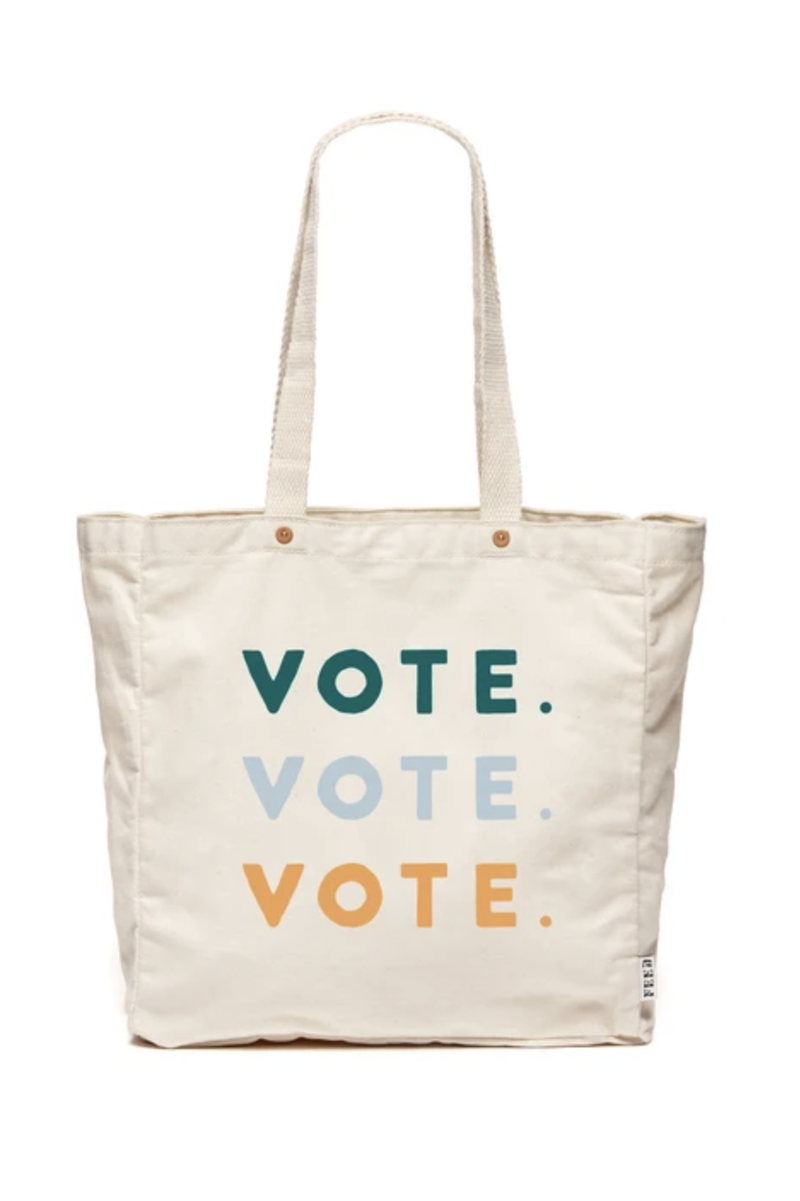
Vote Tote
Help spread the word and provide 10 school meals to kids in need when you purchase this FEED vote tote. A portion of proceeds will also go towards When We All Vote.
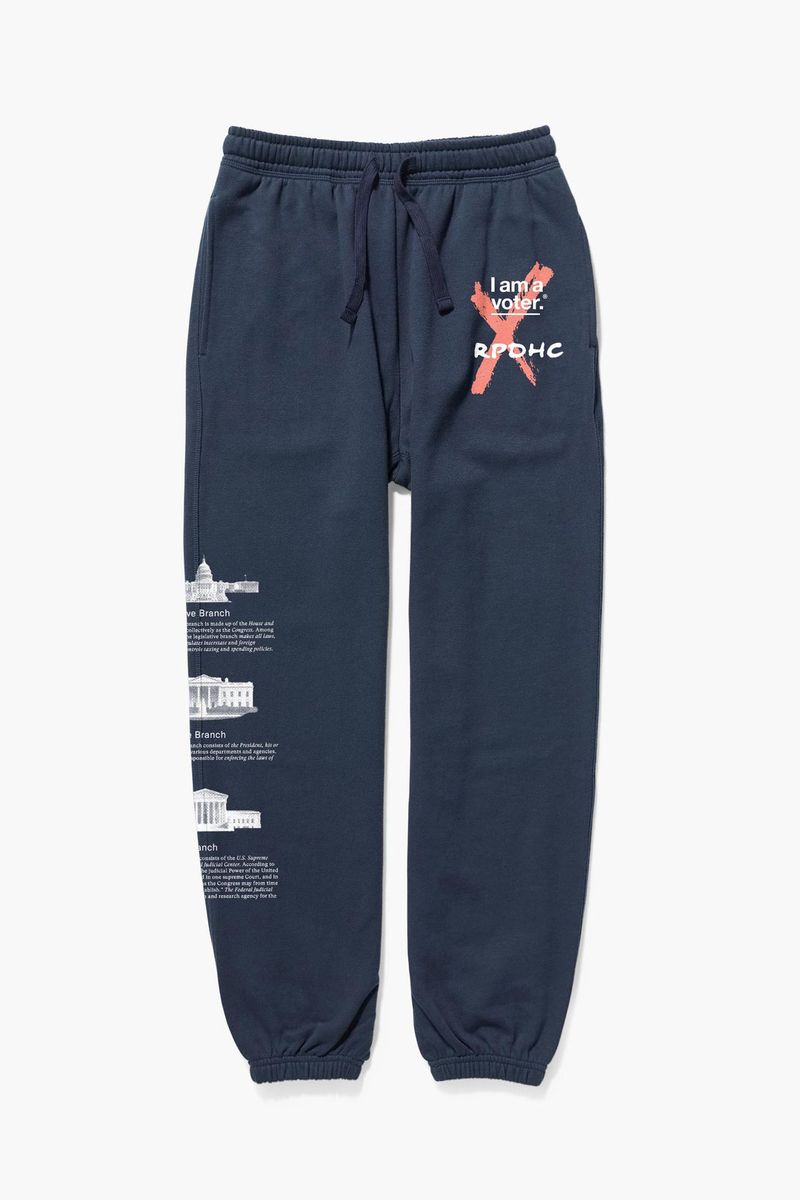
I Am a Voter Sweatpants
These sweatpants were made for quarantine. Through Election Day, Richer Poorer will donate 50 percent of the purchase price of these sweatpants to I am a voter (up to $8,960).
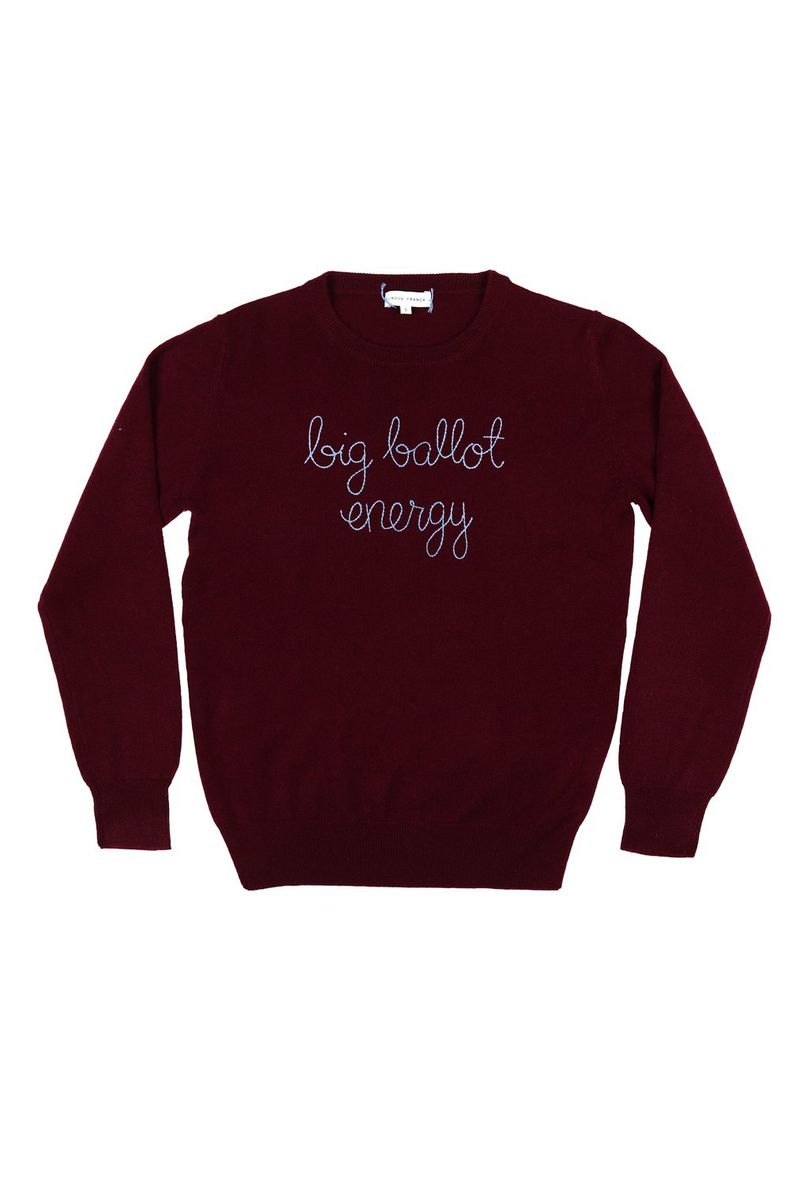
Big Ballot Energy Sweater
Don't mind me—I'll just be living in this hand-stitched "Big Ballot Energy" cashmere sweater from Lingua Franca NYC all the way through November.
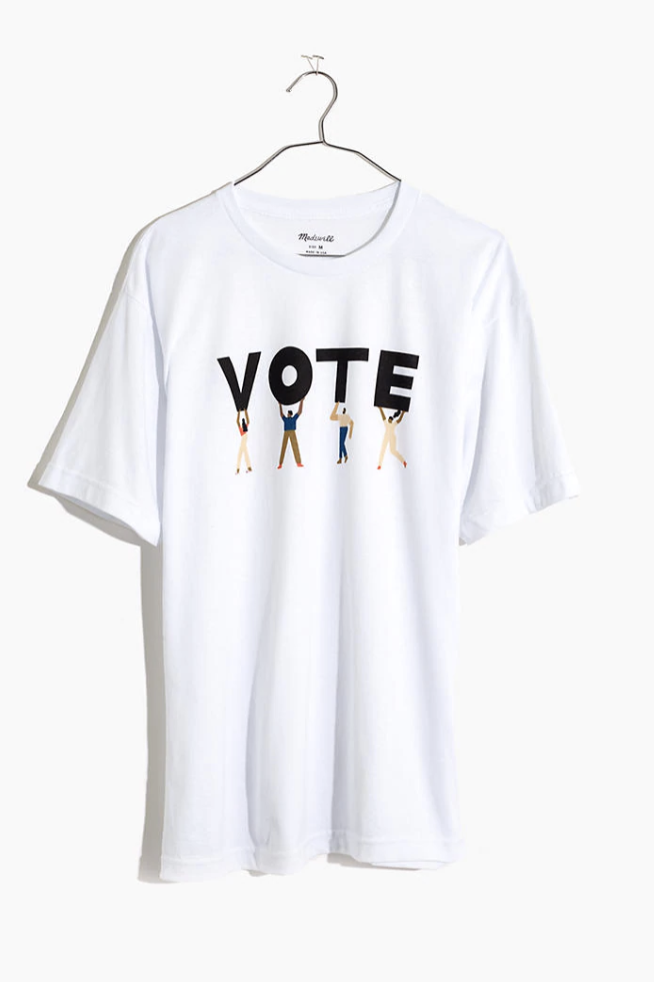
Vote Graphic Unisex Tee
Found: a cute unisex tee where all proceeds will be donated to the American Civil Liberties Union (ACLU).

Vote Face Mask
Support the Human Rights Campaign and keep your neighbors safe by purchasing this vote face mask. It's a win-win for everybody.

Vote Socks
Raise your hand if you will be swapping your ankle socks for these thick, comfy vote socks for the foreseeable future
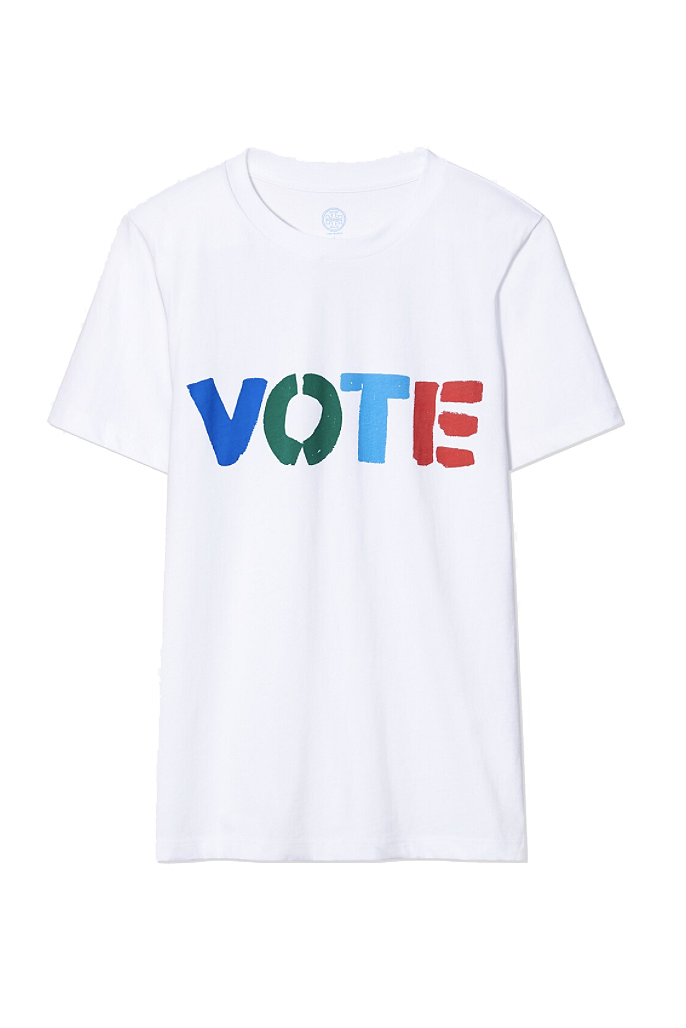
Vote T-Shirt
One-hundred percent of the net proceeds of Tory Burch's vote T-shirt will benefit Eighteen x 18, a platform to engage our generation founded by Yara Shahidi.
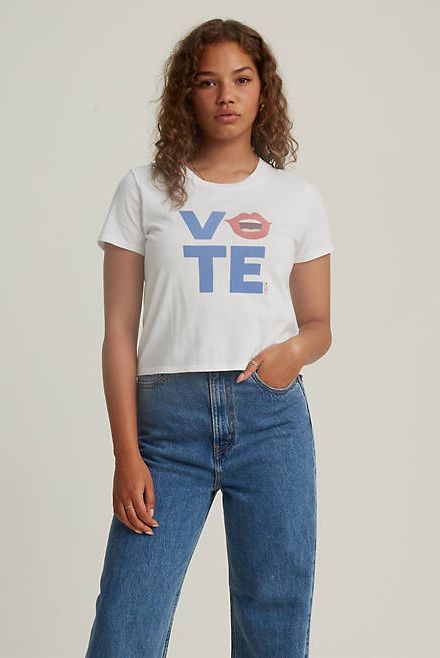
Levi's x Vote Cropped Surf Tee Shirt
Pre-pandemic, this Levi's cropped vote tee would have been an ideal shirt to wear with a leather jacket to the bar. The brand has teamed up with Rock the Vote for a larger initiative to get the word out, and your purchase is a part of it.
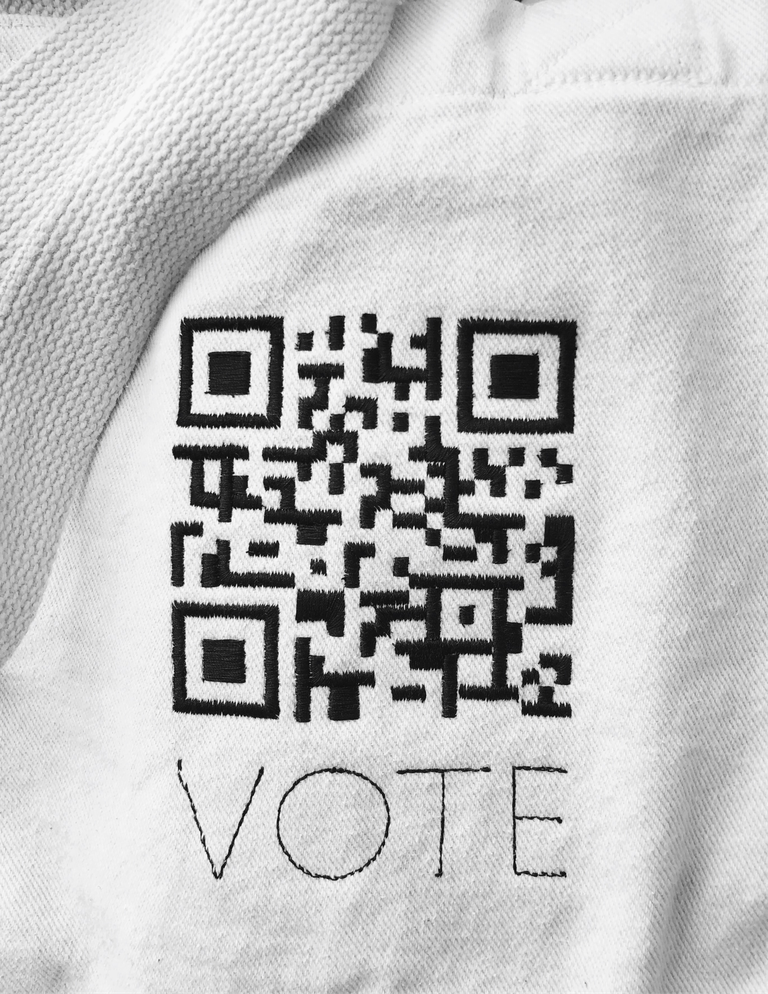
Vote QR Code Tote
Technology! This QR code tote directly links to Vote.gov to encourage people to register to vote. A portion of the proceeds also go to I am a voter.

Vote Short Sleeve
Lingua Franca has so many good voter merch options that it was hard to choose between the "Big Ballot Energy" sweater and this cashmere "Vote" short sleeve shirt.

Vote Necklace
Rosario Dawson and Mira Sorvino have been spotted wearing this "Vote" charm from Alex Woo. It's available in two options with quite a dramatic price difference: The silver charm is $148 and the 14k gold charm is $648. As they say, a timeless piece!
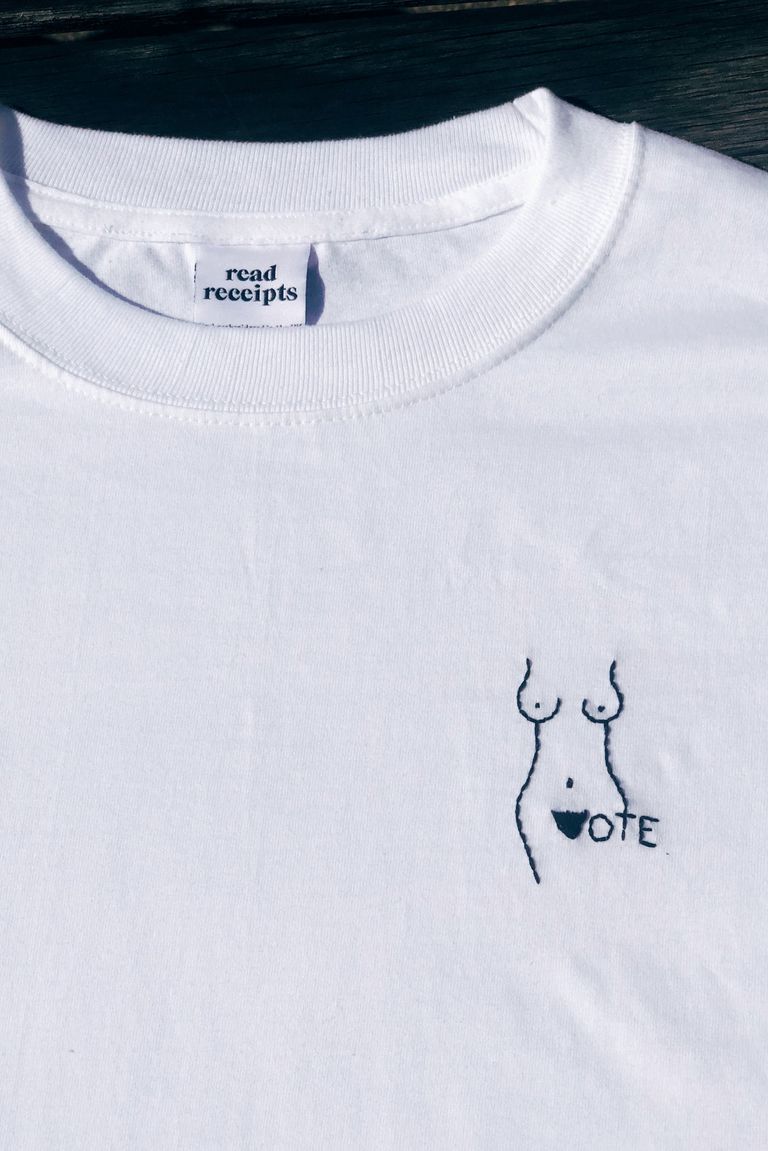
"V Is for Vote" T-Shirt
Although this super cute T-shirt from Read Receipts UK is currently sold out (a portion of the proceeds are donated to She Should Run), do yourself a favor and continue to check the brand's website for a restock. In the meantime, take two minutes to register to vote here.
RELATED STORIES
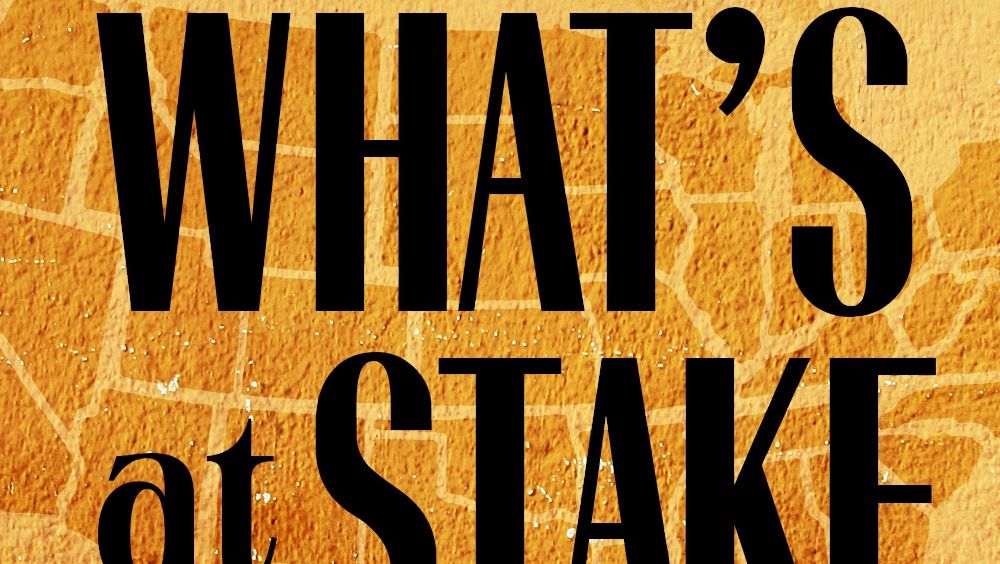

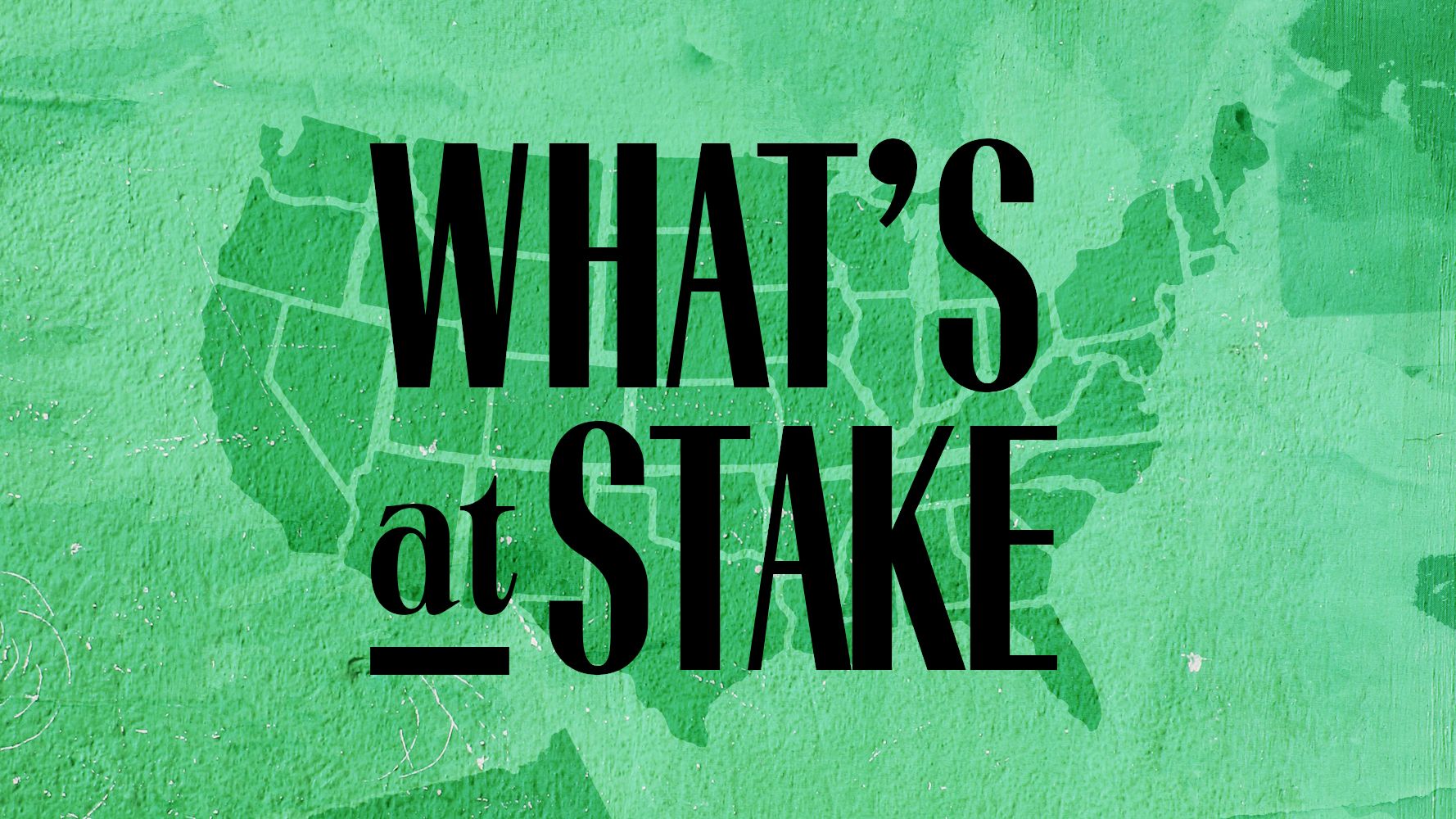

Katherine’s a contributing syndications editor at Marie Claire who covers fashion, culture, and lifestyle. In her role, she writes stories that are syndicated by MSN and other outlets. She’s been a full-time freelancer for over a decade and has had roles with Cosmopolitan (where she covered lifestyle, culture, and fashion SEO content) and Bustle (where she was their movies and culture writer). She has bylines in New York Times, Parents, InStyle, Refinery29, and elsewhere. Her work has also been syndicated by ELLE, Harper’s Bazaar, Seventeen, Good Housekeeping, and Women’s Health, among others. In addition to her stories reaching millions of readers, content she's written and edited has qualified for a Bell Ringer Award and received a Communicator Award.
Katherine has a BA in English and art history from the University of Notre Dame and an MA in art business from the Sotheby's Institute of Art (with a focus on marketing/communications). She covers a wide breadth of topics: she's written about how to find the very best petite jeans, how sustainable travel has found its footing on Instagram, and what it's like to be a professional advice-giver in the modern world. Her personal essays have run the gamut from learning to dress as a queer woman to navigating food allergies as a mom. She also has deep knowledge of SEO/EATT, affiliate revenue, commerce, and social media; she regularly edits the work of other writers. She speaks at writing-related events and podcasts about freelancing and journalism, mentors students and other new writers, and consults on coursework. Currently, Katherine lives in Boston with her husband and two kids, and you can follow her on Instagram. If you're wondering about her last name, it’s “I go to dinner,” not “Her huge ego,” but she responds to both.
